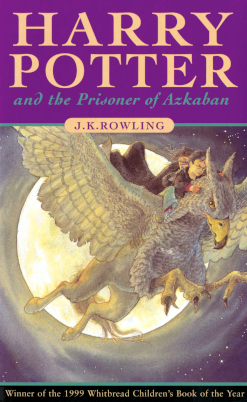
The
third installment of author J.K. Rowling’s Harry Potter series opens
with the eponymous protagonist doing his summer homework from Hogwarts
School of Witchcraft and Wizardry in the middle of the night due to his
bigoted relatives, the Dursleys, who have a very medieval attitude
towards sorcery. He receives owl post that includes a permission slip
necessary to visit Hogsmeade, the Scottish village adjacent to Hogwarts,
which a guardian must sign, and needless to say, the Dursley patriarch
and matriarch certainly aren’t happy to oblige, although they cut a deal
that if Harry acts “normal” in front of the former’s sister, Aunt
Marge, he might sign it.
Things, however, don’t go as planned,
and Harry finds himself on the run from his relatives, taking a magical
form of transportation known as the Knight Bus to Diagon Alley in
London, where he spends the rest of his holiday, having a better time
than with his puritanical relations, and given that he has and had had
similar superior accommodations (having spent part of the holidays
before his second year at Hogwarts with the wizarding Weasley family),
this begs the question of why Harry just completely forewent the
Dursleys, unless he has some form of Stockholm Syndrome.
Harry
gets his shopping done for the following term at Hogwarts and reunites
with his best friends Ronald Weasley and Hermione Granger, and go on the
train headed for the academy, where dark-cloaked entities known as the
dementors are present for security reasons, on account of a criminal
with ties to Harry’s past named Sirius Black, wanted by both the Muggle
(non-magical) and wizarding worlds, having escaped the wizard prison
Azkaban, with one causing the Boy Who Lived to go unconscious, after
which he awakes in the school infirmary.
Some new classes Harry
and friends take include Divination with the enigmatic Professor
Trelawney, where arises the omen of a black dog known as a Grim, and
Magical Creatures with Hogwarts gamekeeper Rubeus Hagrid, who introduces
the hippogriff Buckbeak, Harry having a good flight with the hybrid but
Harry’s nemesis Draco Malfoy getting attacked due to his rudeness,
causing him to complain to his father Lucius and result in the beast
getting treated as pariah, with an appeal and death sentence ultimately
coming for the creature, at least for the time.
Harry and company
also have a new Defense Against the Dark Arts teacher, the
equally-enigmatic R.J. Lupin, whom they, except for the Slytherins,
regard as the best instructor in the allegedly-cursed position they’ve
ever had, and gives hands-on lessons with entities such as the
shapeshifting boggarts, which Harry uses as practice, since dementors
cause him to faint and his Quidditch team to lose a match due to his
incapacitation, for Patronus Charms, helpful in repelling the dark
creatures, and at one point giving Draco and his cronies a scare at
another Quidditch match where they dress black like the beings and are
foiled.
As Harry’s initial broomstick broke during the
unsuccessful Quidditch match, he’s elated to get a replacement from a
person later identified, although it’s checked for jinxes for a few
chapters, due to fear of Sirius Black infiltrating the school, and
allegedly slashing the Fat Lady’s portrait serving as the entrance to
the Gryffindor dormitories. He also receives the helpful Marauder’s Map,
authored by a group of four also eventually revealed, which, along with
his father’s Invisibility Cloak, allows him some time in secret with
his friends in Hogsmeade.
The tertiary entry ultimately climaxes
with a confrontation against Sirius Black, who might have had a hand in
the death of Harry’s parents, with several twists abounding that result
in another satisfying book in the series, although the introduction of a
time-travel element somewhat creates plot holes in future entries where
tragedies make themselves known. Even so, Rowling’s books are
definitely more than readable and memorable, and, given the introduction
of some mature content such as somewhat-coarse language, definitely
grew with their readers.




